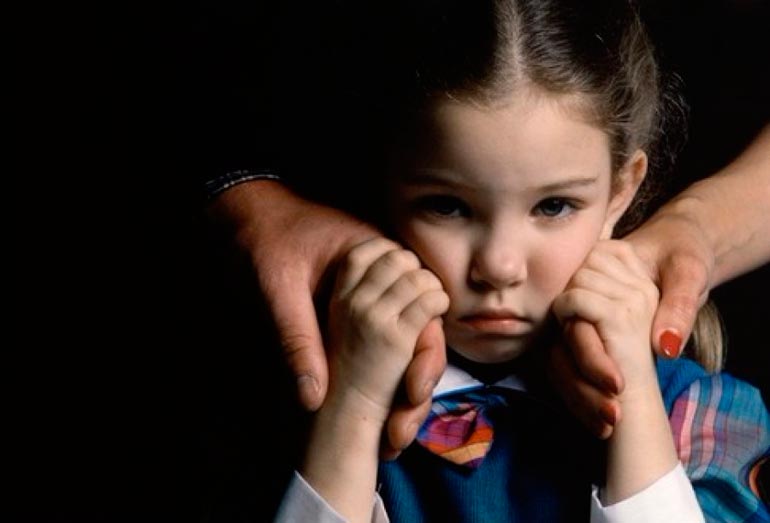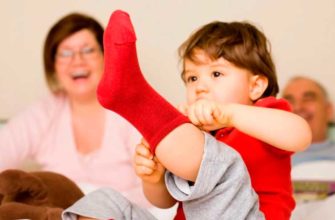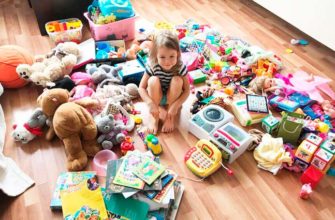Divorce is currently not uncommon. According to disappointing statistics, about half of marriages in Russia break up. Although public attitudes toward divorce are becoming more tolerant, family breakdown is a serious stress for all its members. Children suffer especially from this. The task of parents is to help the child survive the divorce of parents and mitigate its negative effects on the educational process.

Divorce through the eyes of a child
Children in a divorce situation feel intense nervous tension. Unfortunately, in most cases, the separation of mom and dad causes them psychological trauma. An exception is circumstances when a parent leaves, the presence of which caused great discomfort. For example, when a mother divorces her alcoholic father, who was rampaging and beating his wife and children. However, most often the offspring are very worried and do not want their parents to disperse. Psychologists distinguish several generalized children's reactions, which are largely dependent on age.
- From birth to 1.5 years. The crumbs are not yet able to understand what is happening in the family. The reaction to the divorce of parents at this age mainly depends on the experiences of the mother, as they subtly feel her psychological state and adopt it. The peanut can show its emotions with whims, tantrums, nervousness, refusal to eat, sleep problems. Psychological discomfort can affect health: frequent diseases, exacerbation of congenital diseases;
- From 1.5 to 3 years. The emotional relationship of the baby with parents at this age is very strong. They are the center of his small universe, so the departure of one of them will be difficult to experience. Emotions can also affect physical health, manifest in problems with appetite and sleep. It happens that the baby becomes unmotivated aggressive: fights, bites. Some babies return to infant forms of behavior: sucking nipples, refusal to go to the potty;
- From 3 to 6 years. During this period, children have a vague understanding of what a parents' divorce is. They suffer from the fact that one of the parents no longer lives with them. Preschoolers tend to blame themselves for this. Manifestations on the physical level: poor appetite, sleep. Various fears and fantasies may appear. It happens that the offspring behave aggressively against the parent with whom they live. The manifestations of risky behavior, disobedience, injuries are becoming more frequent;
- From 6 to 11 years. The stress experienced by the child from the divorce of parents can be exacerbated by the crisis of 7 years, which coincides with admission to school.If adaptation to school is accompanied by an unfavorable situation at home, this can cause problems with school, reluctance to go to school, conflicts with peers, asocial behavior. At this age, children already understand what a divorce is, often they are afraid that they will not see one of the parents, they will not be able to communicate with him. Fears can also arise in relation to one's future, which seems vague and frightening. Some children think that they can rebuild their family, trying to reconcile their parents. If this fails, the children feel cheated, abandoned;
- 11 years and older. Teenagers are already able to understand what a divorce is, but internally they cannot accept it. Against the background of raging hormones, everything is perceived close to the heart. Teenagers experience resentment and disappointment, often there is a feeling of uselessness and abandonment. The departure of one of the parents can be perceived as a betrayal, a reaction to which there are violations in behavior: absenteeism, alcohol consumption, smoking. It happens the other way around: a child becomes an ideal son or daughter, trying in this way to achieve reconciliation of parents.
At any age, it is very difficult for a child to psychologically when mom and dad decide to divorce. Parents need to set a goal to overcome mutual claims and learn to interact, taking into account the interests of the child.
Tips for divorced parents
- The right decision in a divorce situation will be joint custody of the child. It happens that it is very difficult to do, because the ex-spouses cause each other a lot of conflicting and even negative emotions. Nevertheless, it is necessary to do this in order to minimize the psychological trauma of the child from the divorce of parents. Psychologists say that when the ex-husband and wife maintain a calm, even relationship, continue to jointly care and raise their children, then the children feel normal.
- Do not avoid talking with your child about a divorce. You can’t lie and say that one of the parents went on a long business trip. It’s best to talk openly with your child. It’s good if both parents take part in the conversation. The psychological state of the child after the divorce largely depends on how this conversation takes place.
- In a relaxed atmosphere, tell us that mom and dad are breaking up because they can no longer be happy together. Be sure to mention that you are divorcing each other, but not with the child. Your parting is not his fault. You both still love and will love your baby, communicate and spend time together, although someone will live separately.
- You can not quarrel and insult each other in the presence of a child. Try to discuss disagreements and disputes as peacefully as possible, without involving the offspring in the conflicts.
- Do not criticize your ex-husband or wife with your child. If the child is critical of the former spouse in his absence, you should not encourage him or support him in this.
- Do not put the child in a situation of choice between parents and do not oppose the ex-spouse. A child loves and needs each of you.
- Do not use children as an intermediary between you: forcing to transmit angry messages, demanding money, fishing for information about his personal life. If you have something to say to the former (former), do it personally.
- Stop the child’s attempts to manipulate you with threats that he will leave to live with another parent. This will teach him to control you and negatively affect moral development.
- Do not humiliate the offspring by finding in his behavior traits of negative similarity with his ex-spouse. “All in the father! (to the mother!) ”- such phrases can provoke even more negative behavior and set against both parents.
- Never blame the child for your problems, disorder of personal life, domestic difficulties. This is the fault of adults, and you can not tear off your irritation on it.
- Do not forbid the other parent to see the child. Although the place of residence of the offspring is determined by the court, mom and dad should be near.Agree when and how much time the child will spend with everyone, and do not infringe on the right to communicate with his ex-spouse.
- Be open in communication with the child, while avoiding unnecessary details. The child has a subtle sense of falsehood, therefore it is better to talk about his experiences in a language that he understands. So he will understand that he is not alone in his feelings. On the other hand, do not put your problems on him, they may not be on his shoulder, no matter how old he may seem.
- Show your love and affection generously. It is more than ever necessary for a child in this difficult time. On a subconscious level, many children are afraid that if their parents fall out of love with each other, then they can easily fall out of love. Show that this is not so.
- Give your child as much attention as possible: read, engage in creativity together. Try to expand your social circle so that your child will be distracted from family problems, spend more time outside the house in joint walks, playing sports.
- Help the offspring set achievable goals and achieve them. Do not skimp on praise, but do not avoid fair punishment.
- Try to be an example for your child: do not act immoral, do not lock yourself in, learn to overcome the spleen and enjoy life - and he will certainly join you in this!
If the parents manage to agree among themselves after the divorce and jointly patronize their child, this best affects his psychological well-being.
Positive influence of joint custody after divorce
- Baby feels safe. Participation in the life of the child of both parents gives him a sense of confidence in their love, a positive effect on self-esteem. This helps a growing person quickly and easily accept the fact of separation of the closest people.
- Joint custody of parents gives the child a sense of stability, orderly life. This allows, just as in a complete family, to form a system of rules, rewards and punishments. The offspring is confident in the future, knows what to expect from others and what is expected of him.
- The child learns to deal effectively with difficulties. Having before my eyes the experience of parents who have successfully overcome differences and were able to cooperate for a common goal, the child adopts their model of behavior in difficult situations.
Divorce is not a sentence for a child. The wisdom and love of parents, their ability to compromise, and forget mutual insults will help him cope with stress and overcome it with the least psychological loss.
We also read:
- How to tell your child about divorce - psychologist's advice
- “I’m all by myself”: 5 reasons why mothers do not file for child support in vain
- The husband abandoned the child: what should the mother do
- How to survive a divorce with two children: 7 options for mom
- Why husbands cheat on their pregnant wives - comments of men and advice from a psychologist









Advice advice, but in practice it turns out that a three-year-old child really misses his dad. The ex-husband tries to visit the baby as often as possible (fortunately, we have a good relationship), but this is not enough for the child. It's hard to live like that, to be honest.
I am 25 years old, my parents divorced when I was 4. Based on my experience, I can say that I experienced their divorce heavily because I did not understand what was happening. My father’s relatives accused my mother of having kicked him out, my mother’s relatives told me that the father himself was to blame. I’m not condemning them, but still, the child does not have to take sides, the child simply suffers, because loves both parents, regardless of who is to blame for the divorce. My main problem was that I did not understand what was happening, why dad now lives not with us, but in a separate apartment, I missed him. Here, it seems to me, the main thing is to talk with the child, explain to him why, how, why. To tell that this sometimes happens, that now we will live a little differently. Mom never forbade me to see my father. No matter how angry you are at your ex-husband / wife, it seems to me that in no case should you restrict communication, naturally, if this does not pose a threat to the life and health of your child.
I have a daughter right now, and if suddenly (God forbid!) We divorce my husband, I will act like my mother: I will talk to my daughter as an adult, I will explain everything and I will never forbid to see my father. After all, dad is dad, no matter what he is, the child will still love him.
I myself am from a full-fledged family, but no one, of course, is immune, although I try to take an example from my parents. A lot of marriages break up when a child is not even one year old, of course, it is difficult to blame someone alone, because it rarely happens that everyone likes it and that’s all. If this happens, then giving advice is simple, until you get into such a situation, people are often guided by their emotions and they, and to a greater extent children, suffer from this. Of course, parents are important to children, before my eyes there is even an example when a child has a father, and the mother already lives with another man and makes him call his stepfather - dad, for me this is strange, it is one thing when there is no father, and when is there? If a man offended you, but not your child, should he put sticks in the wheels? Wisdom, of course, comes over the years, first of all you always need to think about the child, and not about your grievances.